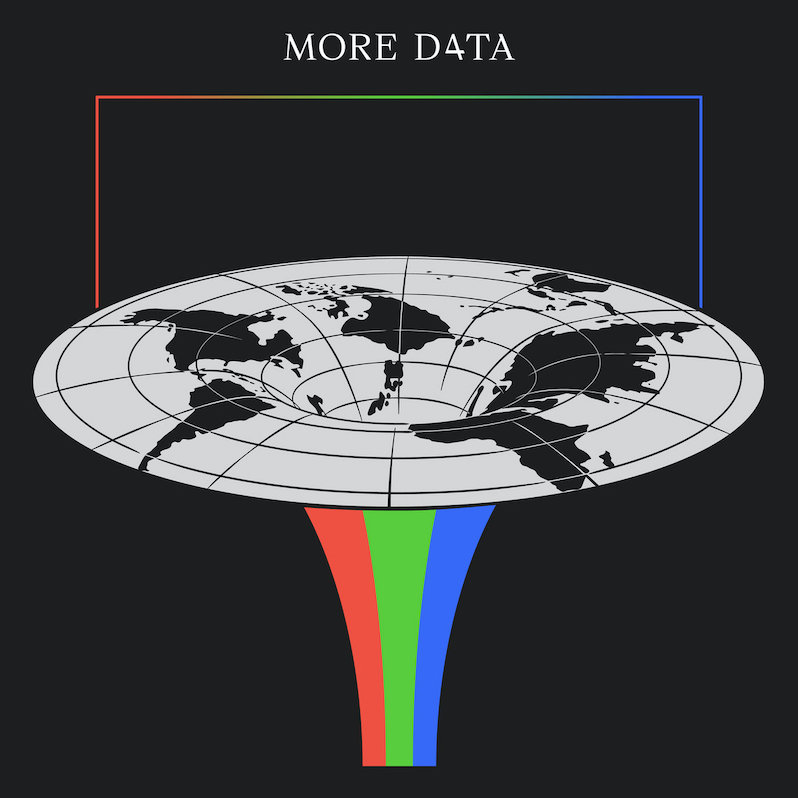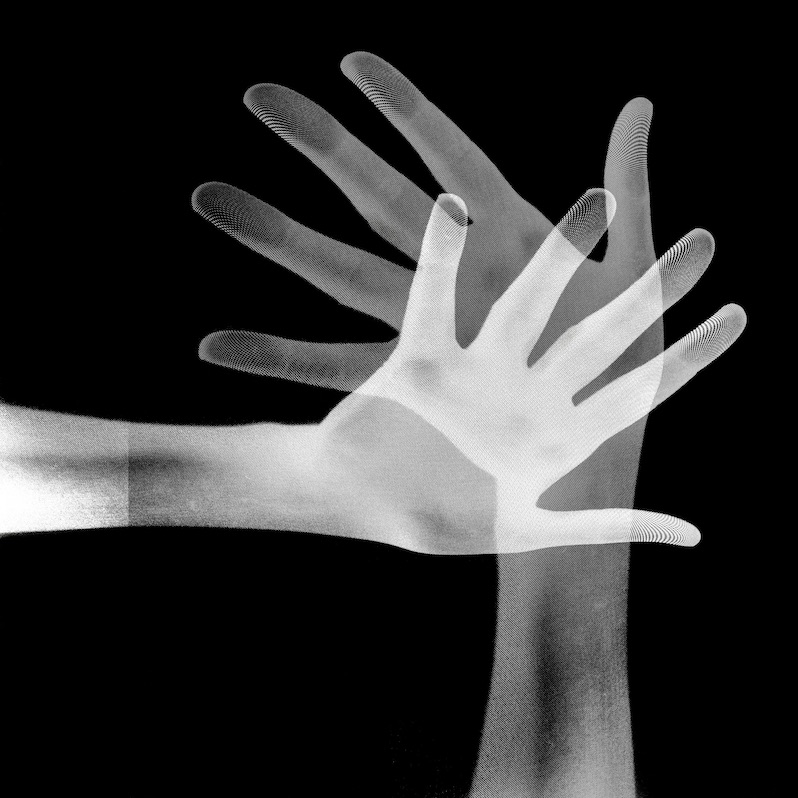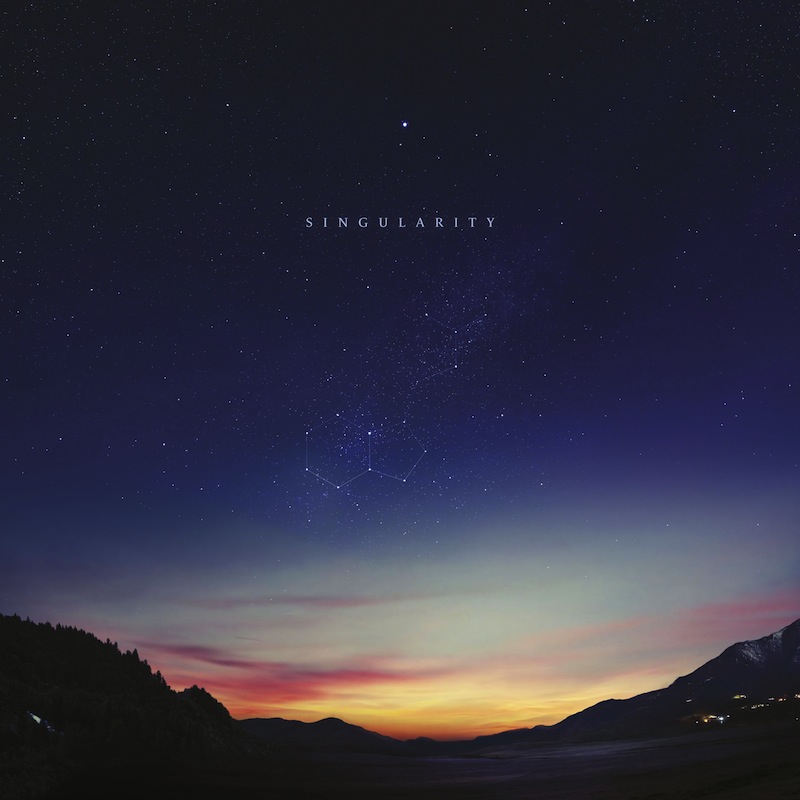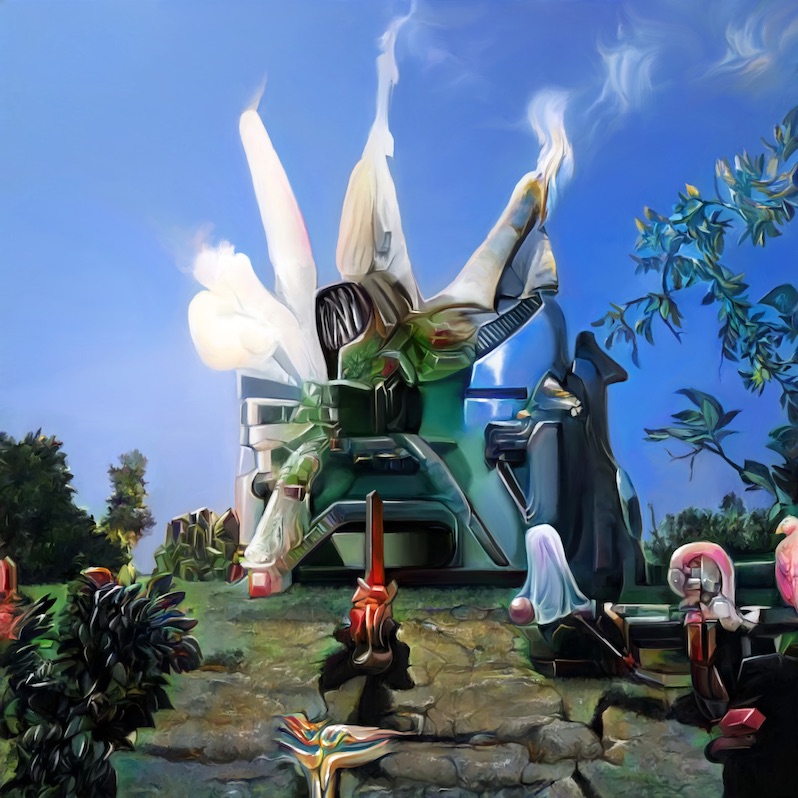Moderat : MORE D4T4

I was shocked by my resistance to this record. Moderat here delivers more of what they are known for: microhouse, emotionally-driven electronic music, fusions of downtempo, grace notes of trip-hop and even light moments of techno. They have always been an emotionally driven group, unafraid of clear and vivid emotional portraiture, but with a propensity for pop that pushes them toward more generalized images rather than the crenelated and often highly-specific emotional imagery of more underground acts. There was perhaps a fear of mine that this was mawkish sentimentality, a hackneyed attempt to evoke a generalize emotionalism without specifically naming the emotion I should feel, without giving me a clear experiential hook to extrapolate the resonant space of the music. I am not strictly opposed to the more impressionistic and abstract spaces of art, but for the first several listens of this record, it felt unnavigable, a labyrinth with no center.
The first moment of the blossom beginning to bloom was on “EASY PREY,” a track that blends techno with microhouse vocal-driven music, landing not too far from Radiohead especially of the underrated King of Limbs era. This is well-trod emotional ground for me; the hiccup of the techno drums replicating a kind of throat-catching anxiety and unease while the icy melodic synths represent a kind of yearning, sharp like daggers but transparent and without clear direction. This is the sound of trembling on the verge of tears and not knowing why, the cyclical social anxiety and alienation that seems to reinforce and reproduce itself. The next moment is in “UNDO REDO,” a piece driven by an IDM-style elaboration of a 2:3 polyrhythm, lots of microrhythmic jostling settling against a vocal performance that reminds of Yeasayer at their most emotionally salient and ruminative. Where the opening track was open space and near-cliches, this is instead lapping waves of avant-garde texturalism threatening to choke out a human voice, a juxtaposition that feels immediately emotionally legible.
I’m not sure how many listens I had logged, but there was a moment during “NEON RATS” that I lurched over to pick up my guitar. This was the moment that I knew it had come together for me; the driving ostinato builds around a fairly standard house developmental beat, but is executed with the same level of finesse and discipline as a peak-era Toto or Steely Dan track. Suddenly, whether this record was cutting a new trail didn’t matter. After all, this is ultimately beat-driven music, even when it has a vocal component, and the key component of beat-driven music is whether or not it can overcome the autocritical component of the psychic, bypass the cogito, the thinking “I”, and reach the pure emotional/response center, not just your heart but your body. The way “NEON RATS” opens up over its nearly 8 minutes laid that bare to me; you close your eyes, you open your mouth, and you feel it, erasing thought for the thing that lies behind thinking. There are potential criticisms that can be made here, of course. Perhaps the album should have leaned more on these kinds of musical spaces, which Moderat perform so capably and powerfully. Perhaps the record should have started in this more active and catching space rather than its slow build, laying bare its potentialities earlier so as not to necessarily take as many listens to full open up. But these are all built on hypothetical records we didn’t receive rather than substantive engagement with the one we did.
Following the drop on “NEON RATS”—a psychic annihilator, which grabs you by the throat and makes you wince with unbidden tears as you begin to dance, to empty, to release—the rest of the record flows like a suite. Something about the energy of MORE D4TA changes and suddenly the musical intent of the material, even as it jostles between icy ballads, post-techno abstraction and R&B-inflected pieces, becomes a solidity. A sensation of loss appears, a lover departing, surrounded by bodies but still alone; as the title states, more data, unto numbness. The relation to similarly emotionally transparent avant-glitch pop from Son Lux becomes clear here. One can almost hear lingering traces of the superlative Everything Everywhere All At Once soundtrack from that other group or the enormity of their Tomorrows triple record. There definitely is not a sense of disconnection from musical continuity on this record, even as the music itself seems to focus on the razor’s edge between connection and alienation as embodied in modern love and socialization.
Even as the record has since opened up its heart for me, it still catches me off-guard on relisten when it turns that corner roughly halfway through. This is a moment for which I am particularly glad we are averse to scores here. How would I rate something like this? The first half, spotty and imperfect, absolutely sets up the second half to feel as profound as it is, like watching a goliath rise from misty rain and reveal itself. There is a chance that, were the album like the back half all the way through, it would be emotionally exhausting. The last electronic record to superbly capture that space for me was Superhumanoid’s Do You Feel OK?, an album that is almost unlistenably emotional to me now, cutting all the way to the bone in a manner I am not consistently capable of bearing. But this lopsidedness and the way it structurally produces a surprise is an undeniable aspect of this record; any criticism predicated on “fixing” that inherently denies part of what makes the second act revelation so powerful.
Label: Monkeytown
Year: 2022
Similar Albums:
Langdon Hickman is listening to progressive rock and death metal. He currently resides in Virginia with his partner and their two pets.




